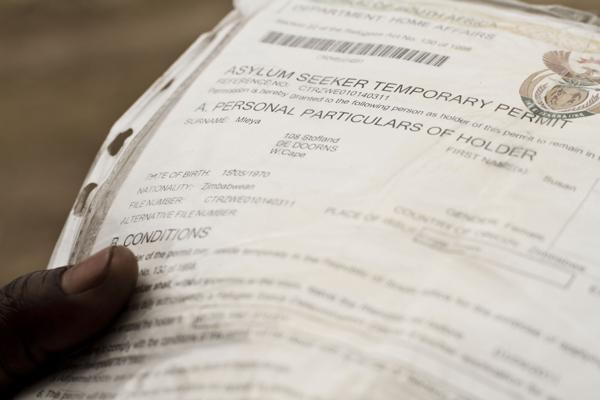Nightmarishly difficult for some refugee children to go to school

More than 20 refugees’ children in Cape Town could not be enrolled in schools early this year due to the lack of asylum documents. The refugees have approached several schools in Western Cape but were turned down.
Williams Phiri stays in Capricorn; he has three children aged six, twelve and sixteen. In 2012 his children were not able to attend school because they lacked permits. Phiri has been to the Department of Home Affairs, Foreshore, in Cape Town and was told to return the following day. When he returned he was told that the manager was in a meeting and unavailable for consultation. Phiri said that he had to let his children skip their normal grades this year. When his children were finally accepted to fill the school’s vacancies the six-year-old, who was supposed to start in grade 1, was put into grade 2. The twelve-year-old who was supposed to go to grade 7 was sent back to grade 5. The sixteen-year-old was supposed to be in grade 9 but was sent to grade 7. This, according to Phiri, was all due to lack of space in the appropriate grades.
Fungai Msipa from Brooklyn said she had obtained a work permit during the Zimbabwe Dispensation Programme in September 2010. She went to Home Affairs in Barrack street twice and was told that she would have to get medical cover for both children in order for the Department of Home Affairs to process study permits for the children.
“Medical cover is R1,800 per child and I cannot afford it”, said Msipa. I went to PASSOP (People Against Suffering, Oppression, and Poverty) for help and was given an official letter highlighting my circumstances. I took the letter to several schools, all of whom rejected it. After a long struggle Ysterplaat Primary School in Brooklyn accepted the letter and enrolled both children. The six years old was fortunate enough to get a placement in grade 1, however, the ten year had to repeat grade 3 because the school only provides education up to grade 3. The children have not been in school since they came from Zimbabwe in August 2012,” Msipa said.
Bernard Toyambi, a para-legal officer at PASSOP questions why legal refugees’ children cannot be enrolled in schools with a birth certificate, like South African citizens’ children. He said section 29 of the South African Constitution stipulates that everyone has the right to a basic education and that the the state must take measures to make education easily available and accessible.
Toyambi explained that the Department of Home Affairs documentation is inconsistent. Asylum documents for parents and children are often out of sync. Because the renewal periods are often very short and inconsistent, parents sometimes end up in the situation where their documents are up-to-date but their children’s are not, or they even do not have documents. Consequently their children cannot get into school.
“In early January we assisted more than 20 refugees whose children were not in schools as a result of documentation issues with the department of Home Affairs. We gave them official letters to use when seeking school places. Some of the refugees asked that the letter not be addressed to only one school so as to allow them to apply to as many schools as they can. I believe the letter worked because we did not get negative feedback. If the schools reject the letter we intend to phone the principal and explain the situation”, he said.
In an e-mailed response to GroundUp, Bronagh Casey, spokesperson for the provincial education MEC, Donald Grant, said that the Western Cape Education Department (WCED) admits many foreign national children. Casey explained that according to first time enrolments statistics, 1,921 learners entered the Western Cape schooling system from other countries between January and March 2012.
According to Casey, the WCED’s admission policy states that people who are classified as illegal immigrants must, when they apply for admission to a school for their children, show evidence that they have applied to Home Affairs to legalise their stay. “Our policy is not to turn any child away. Therefore if the parent is able to show that they have applied for asylum, then the child can be admitted. Applying for asylum is a long process. We understand this. Therefore, all we need is proof of that application. It does not depend on the applicant having a South African birth certificate or official residence.”
Home Affairs failed to respond to a request for comments on the matter.
Support independent journalism
Donate using Payfast

Don't miss out on the latest news
We respect your privacy, and promise we won't spam you.
Next: BM fire victims to be moved to Mfuleni
Previous: Hockey coach Gloria

This article is licensed under a Creative Commons Attribution-NoDerivatives 4.0 International License.
